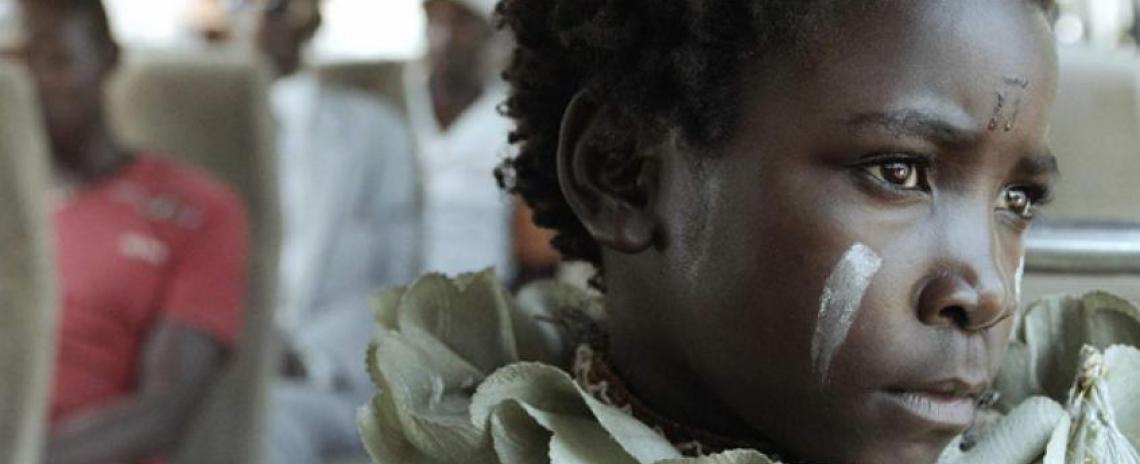Throughout the 27th Annual Whitaker St. Louis International Film Festival (SLIFF), the writers at the Lens will be spotlighting their favorite narrative and documentary films on this year's festival schedule. Each day, our critics will discuss can't-miss festival highlights, foreign gems that have already made an international splash, and smaller cinematic teasures that might have overwise been overlooked – just in time for you to snap up tickets.
Rungano Nyoni’s debut feature I Am Not A Witch is one that SLIFF audiences have likely heard of, largely due to the enthusiastic embrace it has seen across Europe. Partly funded by Cannes, but also the British Film Institute and Berliane’s World Cinema Fund, I Am Not A Witch is perhaps the most "international" of all the films screening at this year’s SLIFF. However, it is also one of the most accomplished, having won the BAFTA award for Outstanding Debut, and securing a submission, on behalf of the United Kingdom, for Best Foreign Language Film at the 2019 Academy Awards. All of these should be sufficient reasons to make I Am Not a Witch a priority at this year’s festival. Even on its own textual merits, however, the film is one of the year’s most ambitious features, a razor-sharp satire of fear and subjugation, both in Nyoni’s native Zambia and on the global stage.
The film’s story focuses on a young Zambian girl, Shula (Maggie Mulubwa), whose enigmatic expression betrays her youth. That inscrutability also seems to get her into trouble with her community; the other villagers have accused the 8-year-old of being a witch. Children so young aren’t usually deemed witches, but Shula’s fate feels predestined, like a fairy tale gone wrong. Resigned to her situation, or maybe just baffled by it all, Shula refuses to confirm or deny the charges leveled against her. In fact, she says very little over the film’s duration, suggesting a lack of agency or perhaps disillusionment; Nyoni is smart enough to leave certain aspects of her film ambiguous.
The charges against Shula range from petty to obscure, but the accounts are uniformly absurd, almost farcical in nature. Take for instance the able-bodied man who tells a crowd of onlookers that Shula used magic to sever his arm from his body, blood spraying everywhere. Moments later, he admits that it was just a dream. This seems to be a knowing reference to the ‘She turned me into a newt!’ sequence from Monty Python and the Holy Grail (1975). Which is to say, I Am Not A Witch is like Dreyer’s Day of Wrath (1943), if it was played for laughs – somber laughs, but laughs all the same.
The local leaders banish Shula to a state-run settlement, where long white ribbons hang from the trees. Attached to these ribbons are older women, also accused of witchcraft and now confined to the camp, just as Shula has been exiled there. People warn the young girl that, if she cuts the ribbon, she’ll become a goat. They assure her that a life as an indentured laborer is better for her own well-being and for the community. Non-African tourists flush with cash come to gawk the witch camp, for example. However, some specially chosen witches, perhaps including Shula, work more closely with the state. They can even become small-scale celebrities, helping with court cases and the like. It is up to Shula to decide what she wants to be – goat or slave – but that seems to be the only choice that is hers alone.
Notably, witch camps are, in fact, quite real and still in use today in Ghana. Rungano Nyoni spent a month visiting one, prior to making her film, but the feature does not position itself as a public service announcement about the plight of these camps. Instead, I Am Not A Witch actively places its conflicts in a global context. The politics of power are what’s on trial here – not just the curious phenomenon of witch camps – and Nyoni’s wry satire cuts to the bone.
I Am Not a Witch screens Tuesday, Nov. 6 at 2:00 p.m. and Saturday, Nov 10 at 5:00 p.m., both days at the Landmark Plaza Frontenac Cinema.


